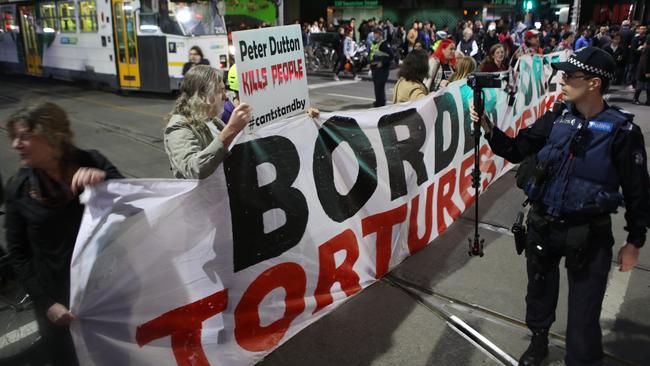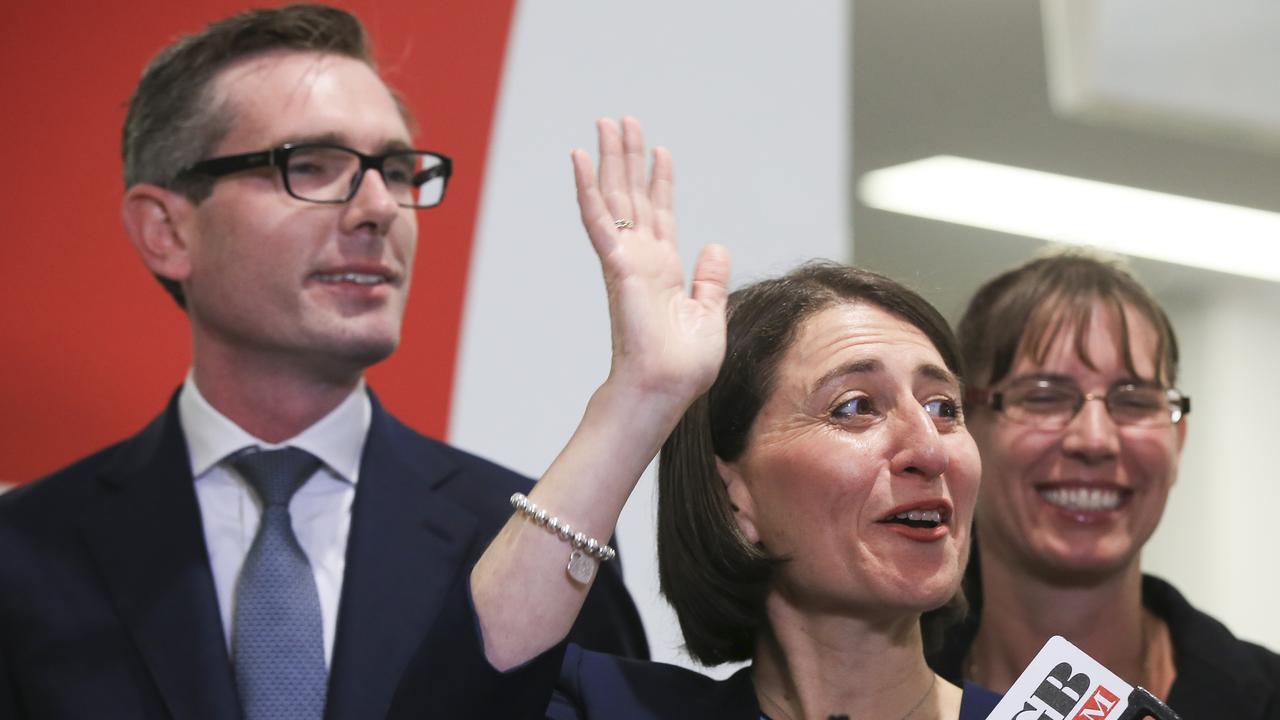
We have learned not to expect much from our politicians and, given the portents, we can expect worse to come. Yet, for the sake of innocent lives, orderly immigration, national cohesion and self-respect, we must demand a mature approach to border protection.
For two decades this nation has torn at its multicultural soul, like a tormented addict scratching at his veins, in a game of political posturing over asylum seekers, their boats and the greedy opportunists who trade in them. We have solved the dilemma once and then, in act of moral vanity, political opportunism and administrative naivety, we unstitched the wound.
The statistics of what then unfolded now roll all too easily from my tongue; just over 800 boats with more than 50,000 people churned through detentions centre opened and filled in every state while at least 1200 people drowned at sea. Numbers — each with all the aspirations, connections and value of a human life. Think of the promise, pain and torment in those numbers.
We could not do anything as a nation — could we — to unleash this agony all over again?
The reignited debate about resettling refugees from Nauru and Manus Island must be seen through this prism. Whatever is considered must not undo the successful defeat of the people-smuggling trade — whatever is done must not weaken the border protection regime and prompt yet another resumption of the illegal maritime expeditions that risk lives, overwhelm our facilities and subvert the integrity of our immigration system.
We must not forget that stopping the boats has allowed for a dramatic and orderly escalation of our already generous humanitarian immigration program. This reality is too often overlooked; apart from stopping the illegal trade, strong border protection allows for an increase in the number of refugees accepted on the basis of need rather than those selected via their access to cash and people-smugglers.
The simplistic calls to “bring them here” are reckless and unhelpful. They present a dangerous risk because if refugees are brought from Nauru and Manus Island to Australia it will send a signal that boat arrivals can once again win the right to settle on our shores. The people-smugglers will market the opportunity immediately. This much we know.
The Greens who, to be fair, have been consistent in their naivety and ignorance on this issue for the entire period, now suggest refugees could come to Australia for processing before resettlement elsewhere. This ignores the obvious reality that when asylum-seekers or refugees set foot in Australia they invariably claim asylum here and initiate legal procedures that keep them here.
That is part of the reason we have seen so many cases of self-harm as well as fuss created over other medical procedures and illnesses — getting to Australia for medical treatment is a route to permanent settlement. The most recent figures show that of 494 people in offshore detention sent to our shores for medical attention, 460 are still here.
The latest so-called compromise that could see Labor and others support laws to ban those resettled in third countries from ever travelling to Australia is a positive step. But it is hardly the breakthrough or acceptance of reality from Labor that is long overdue.
To start with, this law should have been supported when it was first proposed two years ago because it is an entirely reasonable way to increase pressure on refugees to accept resettlement (because it formally closes off the Australian option) and it helps to ever-so-slightly reduce the marketing allure of resettlement in other first-world countries.
Resettlements have failed expectations, with only seven refugees going to Cambodia, an option roundly condemned by Labor, the Greens and other entrenched border protection critics. But at least 372 now have been accepted to the US, with more being processed.
This US deal, struck by Malcolm Turnbull with Barack Obama and valiantly defended upon the inauguration of Donald Trump, is the most telling initiative since Scott Morrison stopped the boats. It is a hard-won lifeline to the families on Nauru and some of the men in Papua New Guinea. Unlike most commentators, I have met many of these families on Nauru. They are not statistics. Neither are they abused, mistreated or held in detention. They are given good medical care, living conditions and education services.
Their trauma is the uncertainty of their situation, their wasted years in not getting on with their lives and their limited opportunities. The children suffer least from these constrictions, except as they absorb the despair from their parents.
I often ponder Syrian refugee Jafar and his five sons, who shared their plight with me on Nauru. The youngest, nine-year-old Salem, was full of life and optimism but looking at the faces of Jafar’s sons it was clear that as the boys grew older the despair of their situation was laid bare. The eldest, 25-year-old Mohammed, was miserable. He would be 28 now, possibly still on Nauru, I don’t know. And Salem, at 12, has probably lost some of his optimism, not all, I hope, but I don’t know. Perhaps they are in the US. I hope so.
We must find ways to resettle all of the people stuck in this limbo. It has taken too long but, to be fair, this has been the focus of the government and others for years.
The option of resettling another 150 refugees in New Zealand, if the lifetime ban laws are passed, will be another useful step. All up there are 1534 people who need resettlement, repatriation or some other resolution.
What is not useful is simplistic and partisan posturing. And what would be tragic is any impetuous unravelling of the border security regime in a way that could open up our borders to 50,000 individual cases of torment all over again. This is where virtue-signalling could again cost lives.
This is why it was particularly galling to see the man responsible for unleashing this mess 10 years ago, Kevin Rudd, speaking irresponsibly last night. The former prime minister appeared on the ABC’s 730 and said he would now bring all the offshore refugees and asylum seekers to Australia. “Absolutely, because it’s inhumane,” he said.
He then went on to cast what must be the vilest slur any former Australian leader has uttered against the nation they led and its people. “What the conservatives have done since 2013 is take that agreement, not subject it to annual review with the governments of Papua New Guinea and Nauru, just rolled it over, and on top of that, make a point of making these arrangements as inhumane as possible, as cruel as possible to satisfy frankly their own racist base here in Australia, rather than deal with this humanitarian challenge in a balanced way.”
Rudd has no evidence to support this claim — either of cruelty initiated by our government or of some racist impetus driving Australian policy. Remember he is the man who dismantled the protections, triggered the influx of asylum seekers, saw 1200 lives lost, put tens of thousands into detention and eventually sent others offshore. Rudd has not freed refugees from detention; he has only sent them in. Yet he calls the people who stopped the trade, emptied the detention centres and have started sending refugees to the US, cruel. And he calls Australian voters racist.
This sort of politicking over human lives has no place in our nation. We need the Coalition and Labor to work constructively and furtively on resettlement options while keeping the smugglers at bay. We cannot risk the inflammatory rhetoric and base politics of Rudd and his allies driving another policy catastrophe.





